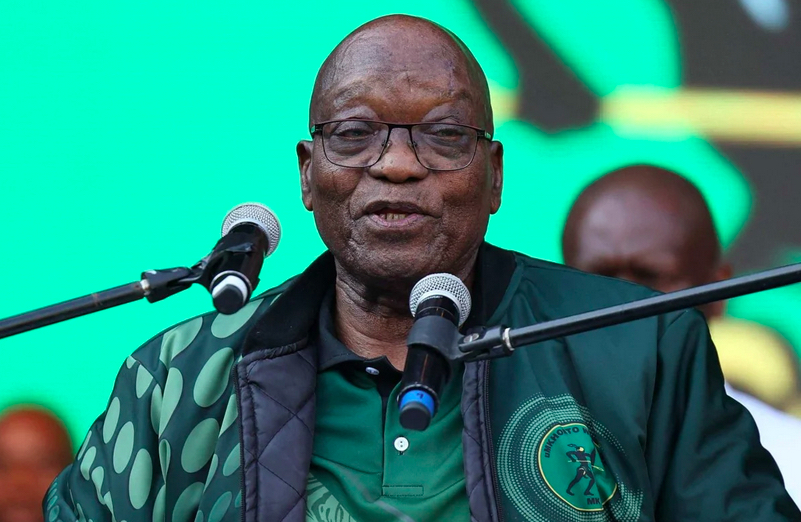Ratings agency Fitch has warned that a decision by the ANC to get into bed with either Jacob Zuma’s uMkhonto weSizwe (MK) party or the Economic Freedom Fighters (EFF) could jeopardise macroeconomic stability.
As political parties weigh their coalition options after the ANC’s sharp decline in the polls last week, Fitch has flagged that a pact with the MK Party or the EFF could pose additional risks to South Africa’s debt trajectory.
Earlier this year Fitch affirmed South Africa’s rating at BB-, with a stable outlook, stating that a further significant increase in the government’s debt-to-gross domestic product (GDP) ratio could result in negative rating action.
Last week’s vote saw the ANC’s support drop from 57,5% of the national vote in 2019 to just over 40% – opening the door for previously undreamed of coalition arrangements.
The Democratic Alliance (DA) grew its support, albeit slightly, securing 21,81% of the vote. Somewhat surprisingly, at least from a markets perspective, the MK party made a stunning debut – winning 14,58% of the national vote and relegating the EFF to fourth in the polls.
Although it was widely assumed that the ANC’s vote share would dip below 50% – forcing the party to enter into a coalition of some sort – some did not see such a severe battering coming.
This includes Fitch, which assumed the ANC would be able to govern with the support of a few relatively small parties, an outcome the ratings agency anticipated would result in broad policy continuity.
RISK
“The various permutations of government could have very different implications for policy, with potentially significant effects for South Africa’s credit profile,” Fitch said in a note on Tuesday.
The ratings agency noted that there is a risk the knock to its vote share could encourage the ANC to adopt short-termist policies to secure a coalition or win back public support. Fiscal consolidation could suffer as a result, it said.
According to Fitch’s assessment, an arrangement through which the DA supports the ANC from outside government is more likely than a formal coalition between the two parties, given their strong divergences.
“If it was secured, we think support from the DA would probably enable president Cyril Ramaphosa to continue implementing his main priorities, including tackling infrastructure issues,” Fitch said.
“It would likely result in the least significant changes to key credit metrics, such as South Africa’s debt trajectory, over the medium term, although fiscal tightening might be enhanced.”
The ratings agency said that in this scenario the DA would probably try to lengthen the phase-in period of the National Health Insurance (NHI) Act, which Ramaphosa signed into law shortly before the elections.
The DA has taken a strong stance against the NHI in its current form.
COMPROMISES
On the other hand, policies proposed by the MK party and the EFF – including wide-scale land expropriation without compensation, the nationalisation of key parts of the economy and halting fiscal consolidation – could force the ANC to make significant concessions, Fitch said.
That said, the ratings agency believes that an MK- or EFF-backed government would be less radical than the campaign platforms of these two parties suggest.
“Moreover, a number of policies proposed by the two parties would require constitutional changes that would be unlikely to pass parliament, in our view, given the outcome of the election,” the ratings agency said.
“Nonetheless, even if the most radical policies do not come to pass, we believe that South Africa’s debt trajectory would face additional risks if the ANC enters into arrangements that rely on support from the MK or EFF.”
If this outcome triggers a broad weakening of investor confidence or eroded governance, it could also jeopardise macroeconomic stability, Fitch said.
– Mail & Guardian
Stay informed with The Namibian – your source for credible journalism. Get in-depth reporting and opinions for
only N$85 a month. Invest in journalism, invest in democracy –
Subscribe Now!







